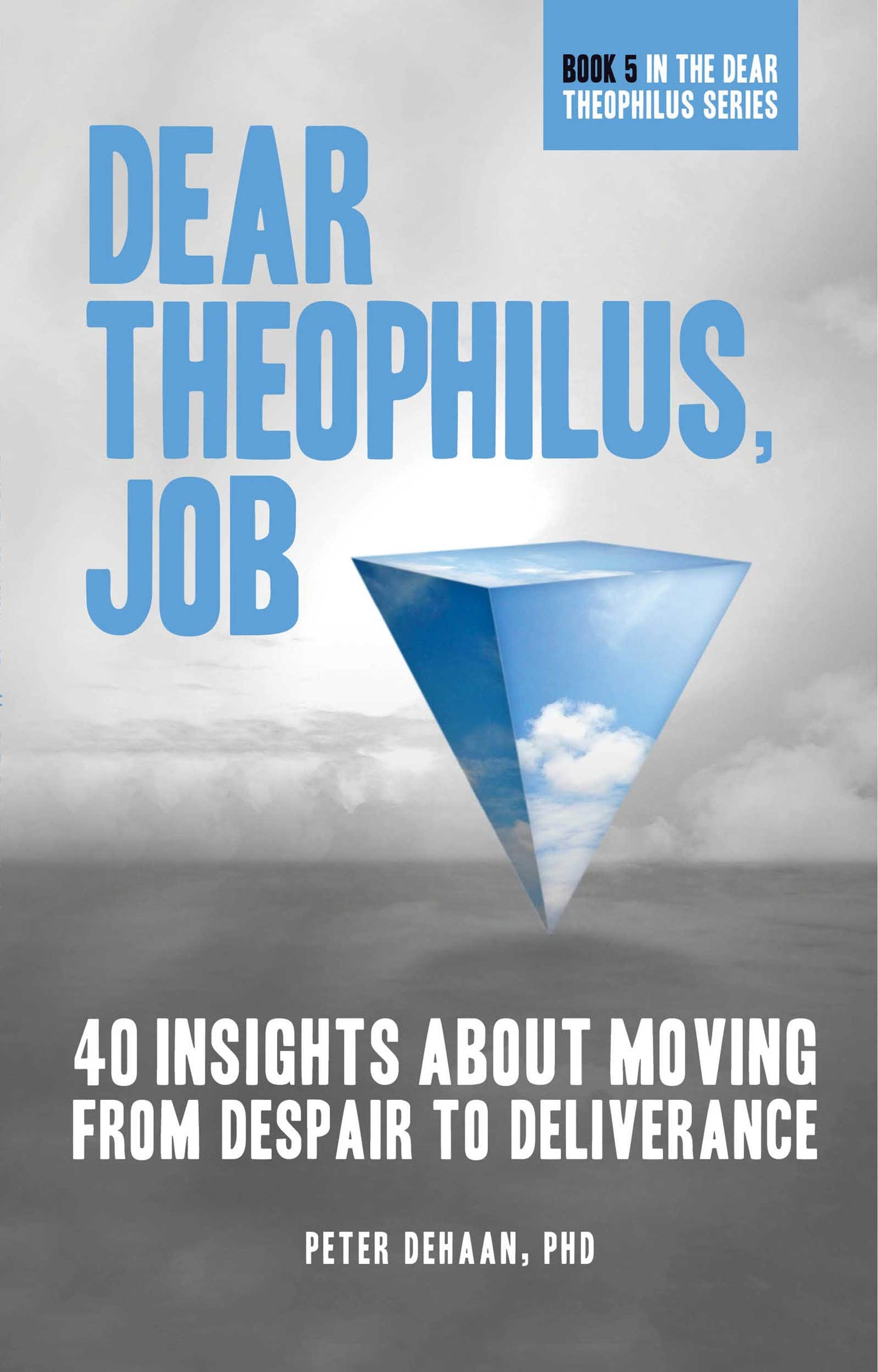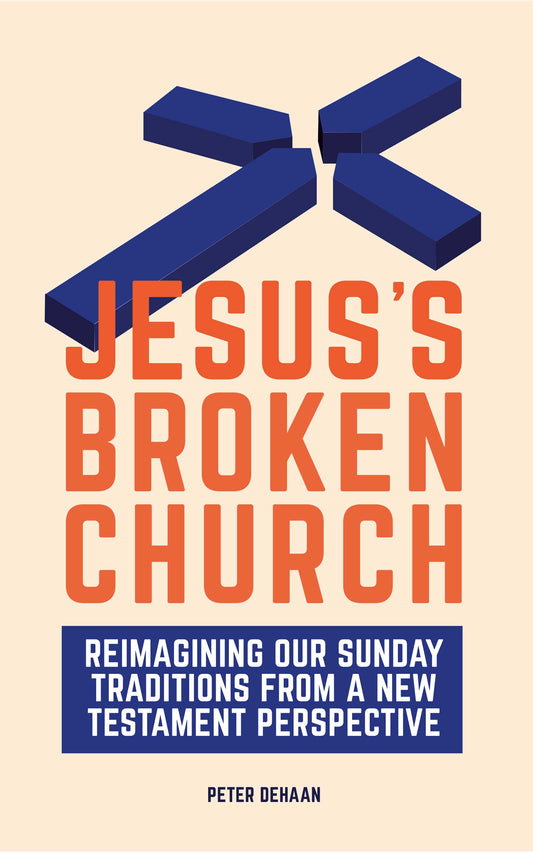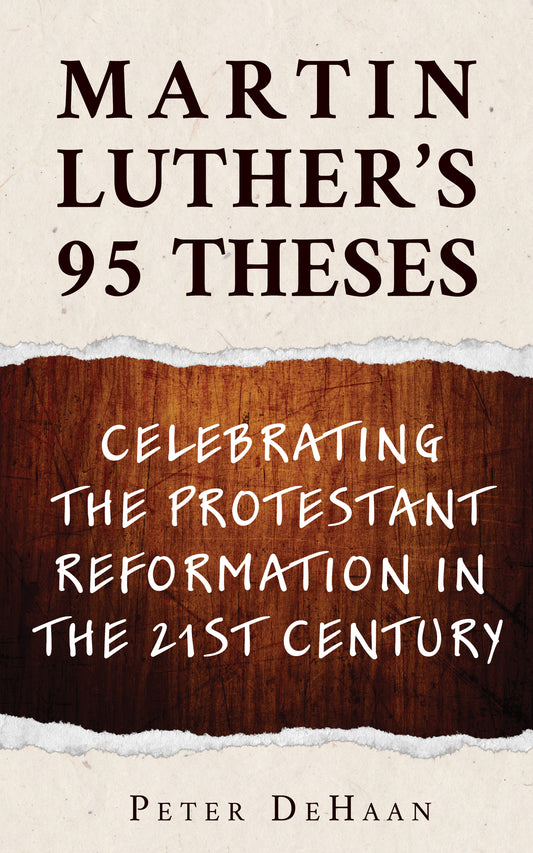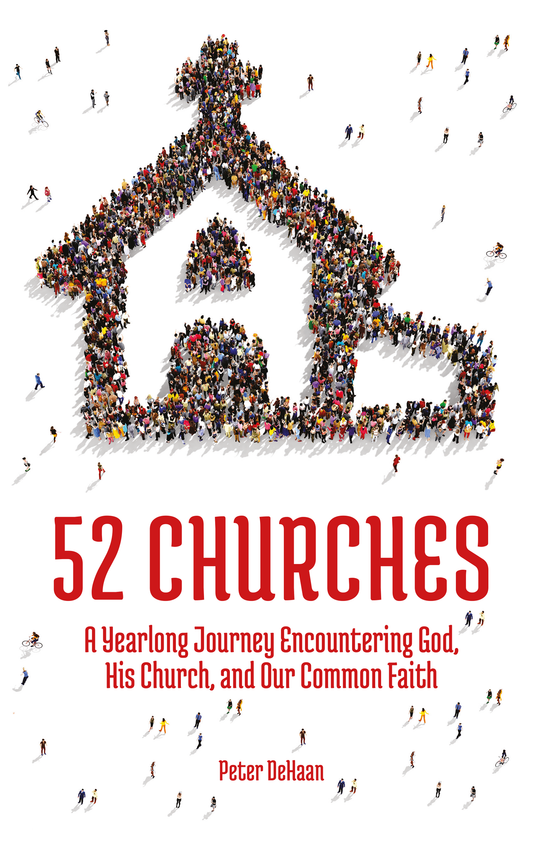Dear Theophilus Job: 40 Insights About Moving from Despair to Deliverance (ebook)
Dear Theophilus Job: 40 Insights About Moving from Despair to Deliverance (ebook)
Spark your imagination by reading Job like a screenplay.
Couldn't load pickup availability
Dear Theophilus Job has been republished as Job Bible Study.
But Dear Theophilus Job is still available!
Get your copy today!
---------------------------------------------
How it works. It’s as easy as 1-2-3:
1. Complete your purchase here.
2. You’ll receive an email from BookFunnel to download or access your book. (Click the “help” link in the email if you have questions.)
3. Start reading right away on any device.
40-Day Bible Study Series, book 5 (but you can read in any order)
If you have questions about ordering, check out our FAQs.
View full details
Would you like to read a sample?
Click here to read a sample
The Book of Job
Many people struggle reading the book of Job. Given that it’s mostly dialogue, what may help is to consider Job as an early version of a screenplay. I, for one, would love to see Job turned into a stage production or a movie.
As we read Job, let’s pretend we’re reading a play or watching a movie. With the characters’ conversations to guide us, we can imagine the setting, the drama, and the emotion. Here are the key things we need to know.
The story of Job has eight key characters:
• Job, the protagonist.
• God, Job’s protector and overseer.
• Satan, Job’s antagonist.
• Job’s unsupportive wife, a bit part, albeit a painful one.
• Job’s main friends: Eliphaz, Bildad, and Zophar. With friends like these, who needs enemies?
• Job’s younger friend, Elihu, initially quiet and then opinionated.
The book of Job opens with a prologue (chapters 1 and 2) to establish the setting of the story. What occurs in the next 39 chapters (Job 3 through 41) is 99 percent dialogue, mostly between Job and his four increasingly critical friends.
The book of Job concludes with an epilogue (chapter 42) that supplies a satisfying ending. Aside from a brief conclusion by Job in the epilogue, the last significant words we have in our story come from God. It’s fitting that God has the final word—and wise that Job listens.
In what ways does God speak to us? How open are we to listen to what he says?
[Discover more about listening to God in Psalm 85:8.]
* * *
Day 1: About Job
Job 1:1–5
This man was blameless and upright; he feared God and shunned evil.
Job 1:1
We open our story of Job by establishing the setting.
Job lives in the land of Uz (not Oz). But before we make the jump and assume this is a fairytale location, we should note that Jeremiah mentions Uz as a real place.
We learn four key things about Job.
First, Job is a righteous man. This means he’s a good guy. He acts justly in all he does and conducts himself with blame-free confidence. He puts God first and avoids evil of all kinds. He’s an example worth emulating.
Next, Job is a family man. He and his wife have ten kids. Though this may seem like an overwhelming number to most of us today, it’s not to Job. In Bible times people saw children as a sure sign of God’s favor. The more the better—a quiver full of them.
Job also carries concern for his kids and their future. After they party, which they do often, Job offers a sacrifice—a burnt offering—for each one of them. This is to purify them of any sin or careless thought. He does this because he wants to help make them right with God.
Last, Job is rich. He owns over 10,000 animals, with a large staff to oversee his herds. He is the wealthiest guy in the area, highly esteemed by all.
In short, Job enjoys an idyllic life of ease and favor from God. Surely, everyone looks up to Job and wants to be like him. This is how our unidentified narrator describes Job.
We might say Job’s life is perfect, and so might he.
This is how our story begins. But like every story worth telling, we know that something will change, or else we won’t have a story.
Before we read on, let’s consider how Job’s life compares to ours. We may be righteous, or we may fall short. We may have a large family, or we may have none.
We may be prosperous, or we may have little. We may have the respect of others, or they may ignore us. Or we may fall somewhere in the middle of these extremes.
How do others see us? How does God view us? What needs to change?
[Discover more about another man, Noah, who was blameless and upright in Genesis 6:9.]

Meet Author Peter DeHaan
Peter DeHaan, PhD, often makes religious people squirm, but spiritual seekers cheer. He’s not trying to be provocative, but he seeks truth, even if it makes some people uncomfortable. He yearns for Christians to push past the status quo and reconsider how they practice their faith in every area of their lives.
Peter earned his doctorate, awarded with high distinction, from Trinity College of the Bible and Theological Seminary. He lives with his wife in beautiful Southwest Michigan and wrangles crossword puzzles in his spare time.
-
Women of the Bible: The Victorious, the Victims, the Virtuous, and the Vicious (ebook)
Regular price $7.99 USDRegular priceUnit price / per -
Jesus’s Broken Church: Reimagining Our Sunday Traditions from a New Testament Perspective (ebook)
Regular price $6.99 USDRegular priceUnit price / per -
Martin Luther’s 95 Theses: Celebrating the Protestant Reformation in the 21st Century (ebook)
Regular price $5.99 USDRegular priceUnit price / per -
52 Churches: A Yearlong Journey Encountering God, His Church, and Our Common Faith (ebook)
Regular price $7.99 USDRegular priceUnit price / per





